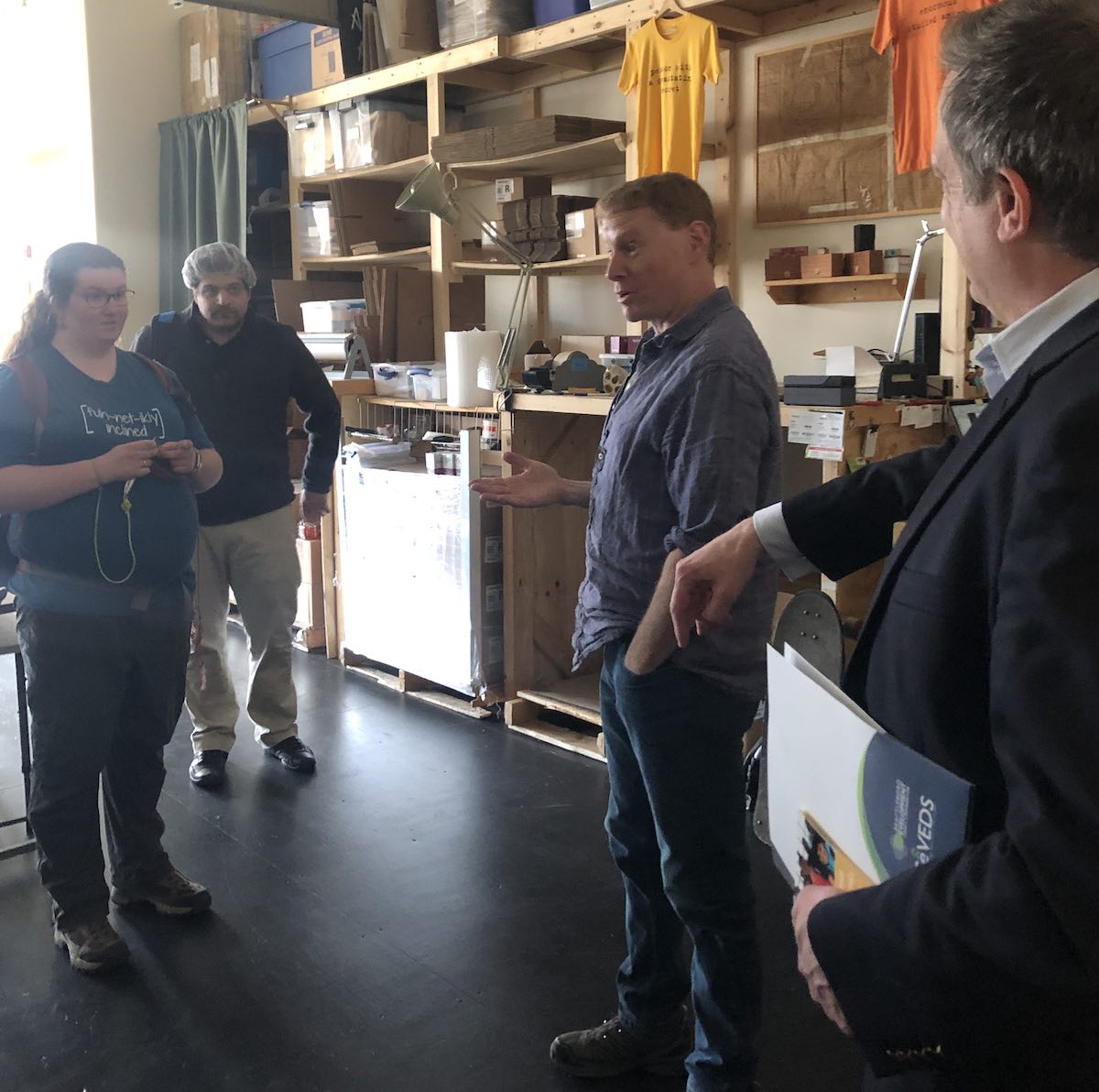
My work this summer – and why it’s important – Caleb Paasche
I’m a 19-year-old college student, a resident of Guilford, and I have spent this summer as an intern working at the Brattleboro Development Credit Corporation (BDCC). If you’re reading this and aren’t familiar with the BDCC or don’t understand the work that the organization does, that’s alright – I didn’t either when I applied for this internship. Sure, I read through the website, but I had little fundamental understanding of the organization’s work and why an economic development organization is essential, even to small towns with limited business activity. That last piece was important for me to understand on a personal level – I’ve lived in Guilford since the age of 2 and I was curious how the BDCC helps my tiny home town.
My internship has been at least somewhat dedicated to understanding that final question of what work the BDCC is doing to help towns in Windham County. To that end, I’ve worked on projects for every piece of the organization and this experience has given me a far clearer picture of the organization’s work.
The BDCC’s focus on improving the economic well-being of Windham County as a whole is done through people, a group of skilled and educated professionals running programs to benefit the region. This includes myriad programs focused on important pieces of the local economy such as workforce development, startup incubation, and intern placement (the program through which I became an intern for the organization). The BDCC also works with businesses individually, supplying advice and space (providing low-cost space in the Cotton Mill, for example).
These programs are predicated on a few crucial ideas, namely acting regionally, improving the size and quality of the area’s workforce, and retaining and attracting businesses. Acting regionally is one key to understand, and its significance to small towns like my home town of Guilford is something I explored in some of my data gathering work this summer.
A small town like Guilford has barely 200 people working in its boundaries, but the town of Guilford has approximately 1,150 working residents. What this shows is that most people who live in Guilford work elsewhere, meaning that the health of the regional economy (the BDCC’s focus), is significant for Guilford residents. This trend remains true across Windham County’s many small towns. It’s pivotal to understand the idea that bringing jobs to a larger neighboring town like Brattleboro helps the small town like Guilford.
While the BDCC has many programs working to advance the Windham region’s economy, one consequential piece is attracting a young and talented workforce. In Guilford, 39.7 percent of the population is between 45 and 64 years old, while just 21.4 percent is under 19. Again, this trend remains true across the county, with Windham County having a median age of 46.8 years (per census data estimates). This creates an obvious issue for the future of all Windham County towns: we don’t have a large enough supply of young people to replace those who will be moving out of the workforce, making the BDCC’s efforts to attract young professionals who can settle in the region and have children all the more important.
Maintaining a vibrant rural economy can be a difficult task and it requires far more handling and cooperation than I had previously realized. It’s critical to understand that having a non-profit organization dedicated to improving the local economy is essential in a place that won’t necessarily attract or retain businesses and workers by itself. This work is hard, with hours upon hours spent gathering data, compiling figures and reports and working with companies. In fact it’s one of my largest takeaways from the last 11 weeks that after interning at the BDCC this summer, I now feel an acute sense of gratitude to the people in this organization, working constantly to advance the economic fortunes of the region I consider home.
Caleb Paasche
Guilford, Aug. 3



